This is our detailed gay travel guide to Sri Lanka including safety tips, the best gay scenes to explore, things to do, eat, and more.
Sri Lanka is a little pearl in the Indian Ocean. This paradise-like island has some of the most delicious food we've tried in Asia, the best safaris outside of East Africa, and our favorite train journeys. Sri Lanka also has beaches, stunning landscapes for trekking, and kind, warmhearted people who love welcoming foreigners, straight or gay.
For such a small place, Sri Lanka offers so much that many come here for their honeymoon. Yet the sting in the tail comes when you quickly realize that the country still clings on to its anti-gay laws introduced by the British during the colonial years in the 1880s. Even though the courts have declared these laws to be unenforceable, the fact that the Sri Lankan government refuses to get rid of them is a sad sign that Sri Lanka is still very much a conservative society where you do need to tread cautiously as an LGBTQ traveler.
We explore the anti-gay laws along with other general advice for LGBTQ travelers in this comprehensive gay country guide to Sri Lanka.
Heads up: We just wanted to let you know that this post contains affiliate links. That means if you book something through one of those links, we'll get a small commission, at no extra cost to you. It helps us keep our blog going – so thank you in advance for your support! ♥
We've teamed up with the excellent gay travel company Pinky Swear to offer our readers an exclusive 5% discount off the total cost of any trip you book with them. They specialise in crafting tailored trips and itineraries for LGBTQ travellers to Sri Lanka.
We love Pinky Swear because not only are they super passionate about LGBTQ travel to Sri Lanka, they are a company run by gay locals, so you know you'll be in good hands.
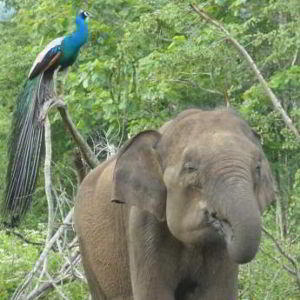
I WANT MORE INFO
Fill out this form to get a personalized itinerary for your upcoming trip to Sri Lanka with Pinky Swear and get an exclusive 5% discount off the total cost.
You can also contact Pinky Swear directly, but don't forget to mention the promo code NOMADICPK5 to get a 5% discount.
LGBTQ rights in Sri Lanka
On the face of it, it's illegal to be gay in Sri Lanka. Section 365 of the Sri Lankan Penal Code dating back to 1886 criminalizes “carnal intercourse” with up to 10 years in prison and a fine.
This law dates back to the British Colonial days. Ask a local and they will enthusiastically tell you “but it no longer applies!”, which is both technically right and wrong.
On the one hand, the Sri Lankan government refuses to repeal the anti-gay laws and often makes openly homophobic statements. They have even embellished the anti-gay laws. For example, in 1995, the Sri Lankan judiciary amended Section 363 to add “gross indecency” as a crime punishable with a fine and up to 2 years in prison (section 365A) without giving any guidance as to what constitutes “gross indecency”. As such, the LGBTQ community can either be arrested for “carnal intercourse” (if caught in the act), or for the more loosely defined “gross indecency”.
Yet, on the other hand, the Supreme Court of Sri Lanka also declared that these laws are now unenforced and dormant. We're hoping that the fact that big sister across the waters – India, decriminalised homosexuality in 2018, will surely inspire Sri Lankan lawmakers to also do away with their anti-gay laws.
Is Sri Lanka safe for LGBTQ travelers?
As disdainful as the anti-gay laws of Sri Lanka are, we don't think this should stop you from visiting. Sri Lanka is a beautiful country, with so much wildlife, safaris, beaches, and a rich cultural heritage. As a gay couple traveling in Sri Lanka, we felt very safe. Sri Lankans are very welcoming people and super curious about foreigners whether straight or gay. At worst they thought we were twin brothers! We never felt in any danger for being gay nor ever experienced any homophobia; put it this way – we never thought twice about booking a double bed anywhere in Sri Lanka.
There is even a growing number of hotels specifically targetting gay travelers. For example, Gomez Place in Negombo is a male-only resort and the Dickman and Binnacle resorts (also in Negombo) are well known for being gay friendly.
For LGBTQ Sri Lankans, however, the situation is very different. Society remains socially conservative and frowns on homosexuality. The mere existence of anti-gay laws (even if unenforced) simply validates violent crimes against the local LGTBQ community, particularly by policemen who use it as a way to get bribes. Read more in our interview with local boy Kaluu from Colombo about what it's like growing up gay in Sri Lanka.
We strongly believe that the more we (as LGBTQ travelers) visit places like Sri Lanka, the more visible we become, which can only serve to alter and change locals' attitudes towards us for the better.
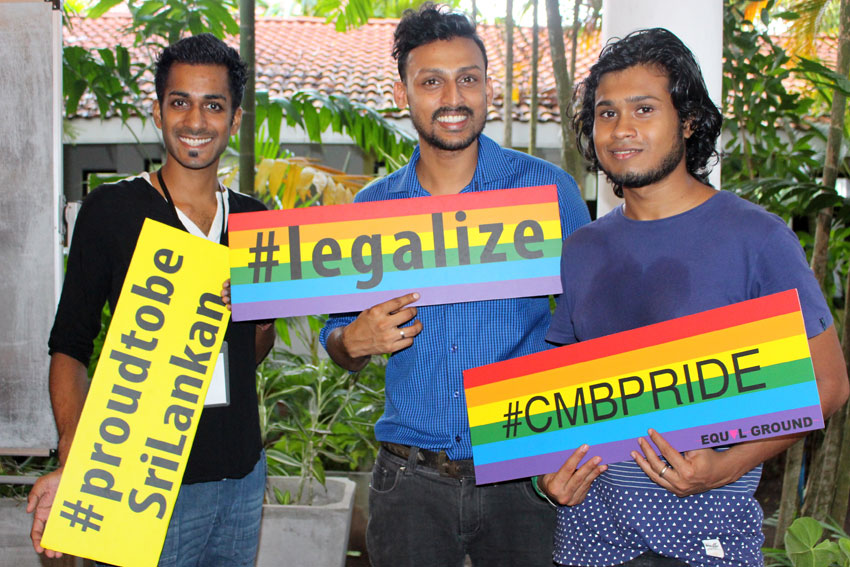
The gay scene in Sri Lanka
In light of the anti-gay laws of Sri Lanka, there is no official gay scene anywhere in the country. However, this does not mean there is nothing for LGBTQ travelers here. We discovered quite a vibrant underground scene in the main cities, particularly in the capital, Colombo, and the beach resort town of Negombo.
One tip is to use gay dating apps to connect with locals. In countries like Sri Lanka, where being gay is so underground, apps like Grindr literally become the gay scene.
The gay scene in Colombo
In the absence of a gay scene, there are no official queer hangouts in Colombo. However, the city has a large LGBTQ community living here. We strongly advise using gay dating apps and social media to tap into the local scene and find out about any underground ad hoc parties/events taking place. For example, the Lazaani Hotel often hosts gay parties and events – see the video clip below.
When we visited Colombo, we found that the bars and restaurants linked to the large hotel chains were the most gay friendly, where we felt most comfortable with PDAs. Examples include the Cinnamon Grand Hotel, Juliana Hotel, and the Lazaani Hotel.
In terms of gay cruising in Colombo, local friends there told us the best spots (where both straight and gay men go) include: the bushes of the Wellawatte Railway Station, Bambalapitya beach, behind Majestic City, and around the Colombo Fort area after sunset
The gay scene in Negombo
Negombo is a beach resort town around 40km (25 miles) north from Colombo. It's one of the most liberal places in Sri Lanka, which has allowed a more commercial LGBTQ scene to develop.
Negombo has a few “unofficial” gay hotels worth checking out. The main one is Gomez Place, which is men-only. The other gay hotels of Negombo include the Dickman and Binnacle – both of which are “adult-only”. In terms of LGBTQ hangouts, the bars we felt most comfortable in (as a gay couple), were Rodeo Pub and the Serendib Pub. Negombo Beach is also a popular gay hangout spot during the day. After sunset, look out for the “beach boys” (local name for escorts) cruising for clients along the beach.
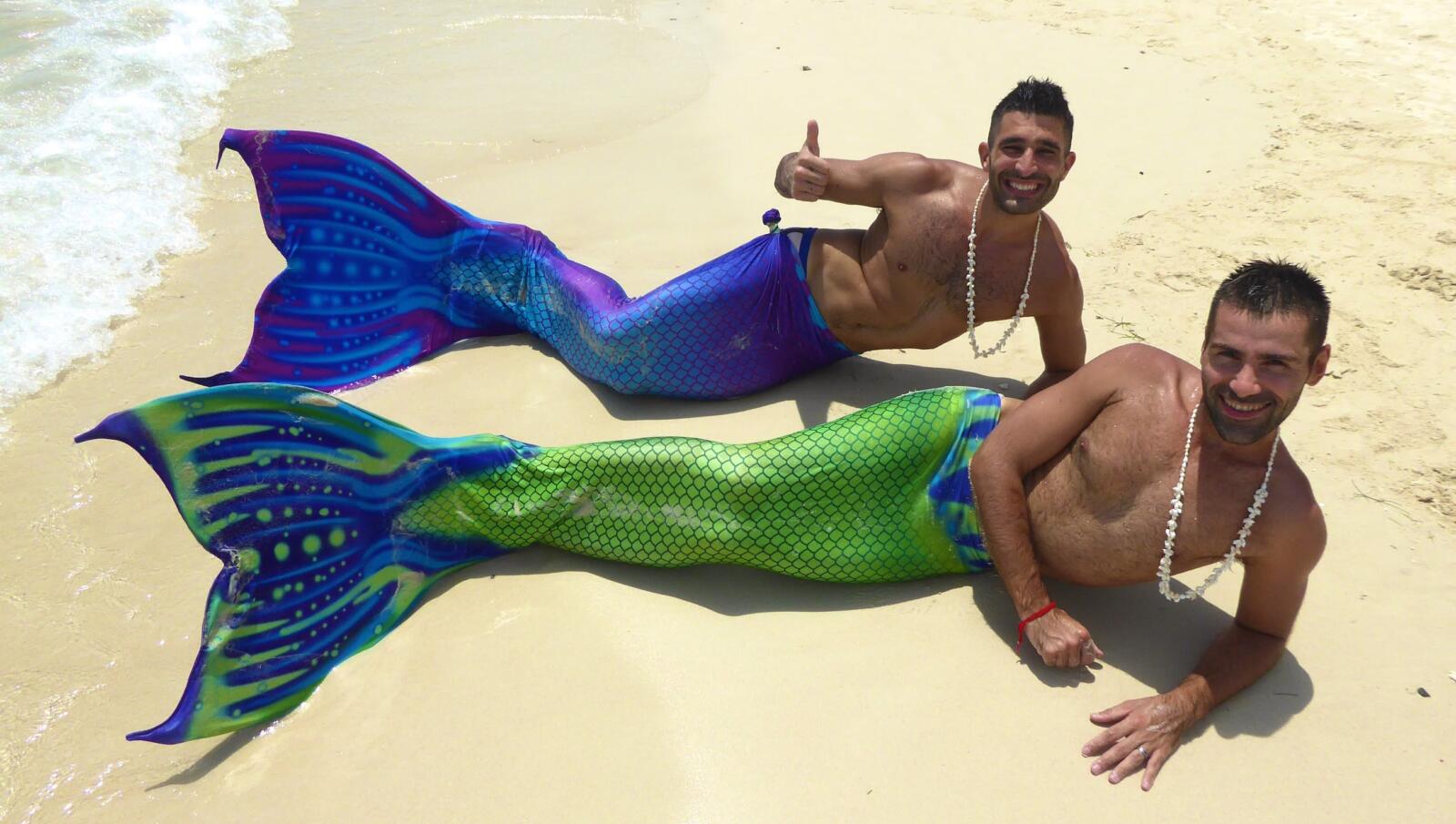
Top experiences in Sri Lanka for gay travelers
This is a country rich with cultural experiences, especially if you're into wildlife and nature. Sri Lanka also has some of the most incredible train journeys we've ever been on, as well as delicious food! Then there's trekking, safaris, surfing…
Suffice it to say, you won't get bored here. Here are some of our top experiences in Sri Lanka:
Incredible train journeys through tea plantations
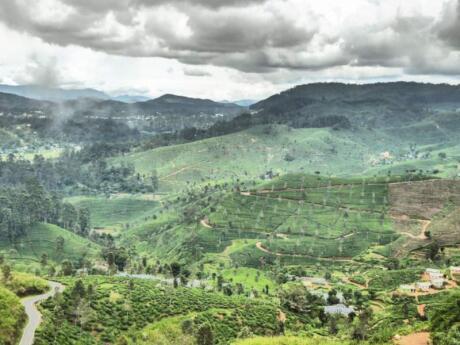
One word, stunning! Even with all the train traveling we've done from the Trans Siberian railway to the high-speed Shinkansen trains of Japan, nothing compares to the train journeys we took in Sri Lanka. The most impressive leg is from Kandy to Nuwara Eliya and then the train ride to Ella. The journey takes you through the lush green tea plantations then powers into the spectacular cloud forests. Locals get on and off at each stop while school children run along the tracks to catch up with the train so it can take them home. It's truly an experience you'll never forget, especially if you sit by the doors of the train.
Safaris to see elephants, leopards, peacocks and more…!
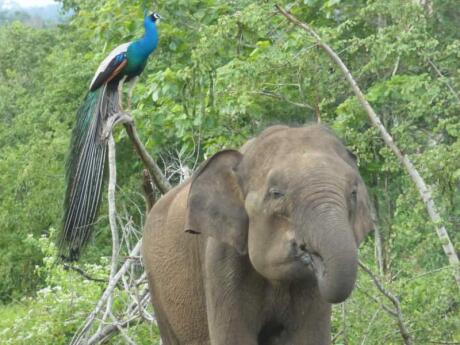
The National Parks of Sri Lanka offers some of the best safaris outside of East Africa. The most famous is Yala National Park where you can spot leopards and elephants in the wild. Our favorite is the less frequented Udawalawe National Park. Udawalawe is fantastic because with fewer visitors it means fewer jeeps blocking your way and therefore a more rewarding safari. At one stage during our safari at Udawalawe, we spent an hour in our jeep watching a family of leopards interacting, just meters away! Read more about these two parks in our article comparing a safari in Udawalawe and Yala National Parks.
Trekking in Ella
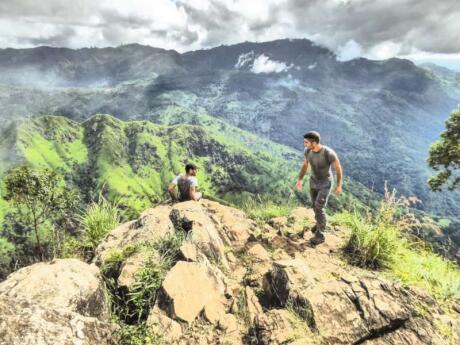
There are many famous treks in Sri Lanka, the most talked about being Adam's Peak, which is more a hardcore pilgrimage trek for Buddhists, involving a very early wake-up. However, we instead recommend basing yourself in the pretty small town of Ella, which is surrounded by beautiful mountains and hills. Our favourite trek here was to Ella Rock, which is slightly hard but not too laborious. The views however from Ella Rock are something else! You can trek to Ella Rock yourself and it only takes around 4 hours from start to finish, so can be done at any time of the day you fancy. The other popular trek to do in Ella is the shorter and easier Little Adam's Peak.
Whale watching at Mirissa
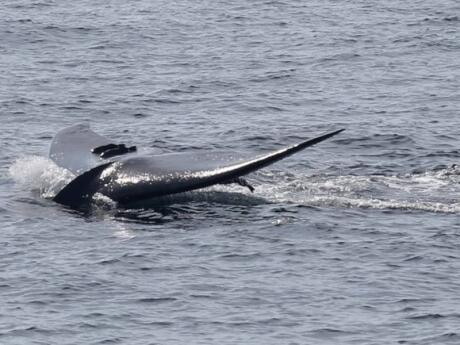
We loved spotting orcas in Argentina so we jumped at the chance to do it in Sri Lanka. The south coast of the country is the best place for spotting blue whales, particularly around Mirissa. This is because the waters here are particularly rich in plankton, which almost guarantees sightings whenever sea conditions are good.
The ideal time of year to come is between November to April when sea conditions are most likely to be optimum. When we came, we got lucky and saw a male blue whale wooing a female during our trip – absolutely incredible!
Then on the way back, we spotted many dolphins and even a pair of turtles mating! The one thing we strongly advise is only going with a responsible company that abides by the criteria set by the WDCS (Whale and Dolphin Conservation Society). For more, check what we rate to be the best places in the world for whale watching.
Exploring Sri Lankan food
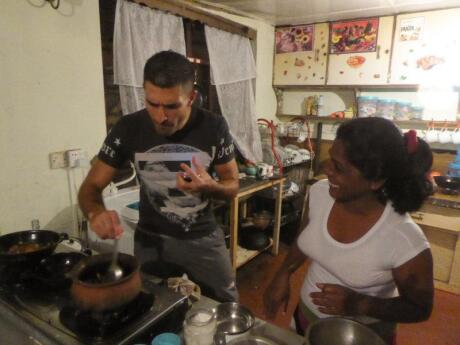
Whilst doing a cooking class may sound obvious and slightly cliche but hear us out; Sri Lankan food is one of the best we've tried in all of Asia. With so many different nationalities leaving their mark, the island offers a variety of cuisines. You can read more about our favourite Sri Lankan dishes below, but even better, try to do a cooking class or ask your hostel/guesthouse host if you can cook with them. We did this with our hosts in Ella and Negombo, who were both happy to show us their recipes for rice with curry and devilled prawns.
Visit a tea factory in Nuwara Eliya
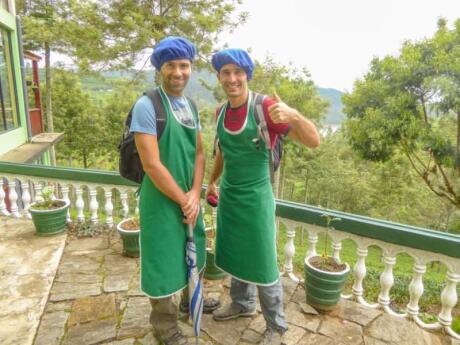
The tea industry of Sri Lanka is immense. During the British Colonial years, the tea industry flourished in Sri Lanka, which is why the trains were built across the tea plantations – to take it to the coastal ports so it could then be shipped over to Europe. Nuwara Eliya is the most famous place in Sri Lanka for tea plantations. It is nicknamed “Little England” because the British Colonists established it in the 1840s as a base. In Nuwara Eliya, you can visit one of the many tea plantations to take a tour, have a tasting session and learn more about how the herbs are harvested and made into the tea bags we buy in the supermarkets.
Temple of the Sacred Tooth Relic in Kandy
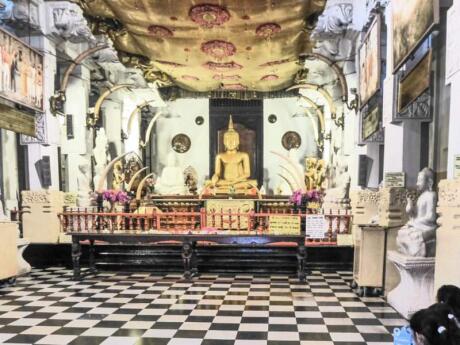
If you read all the guidebooks and online accounts of Sri Lanka, they'll rave about Kandy. We'll be honest, we weren't blown away by it. The most famous sight in Kandy is the Temple of the Sacred Tooth Relic, which is a Buddhist temple in the old city. It's famous for housing the relic of the tooth of the Buddha, but you don't actually get to see it. It is instead kept in a golden casket shaped like a dagoba (stupa), which contains a series of six dagoba caskets of diminishing size. The temple is quite impressive, but we felt that it was perhaps more impressive and meaningful to people who were devout Buddhists.
Vitamin Sea and impressive sunsets
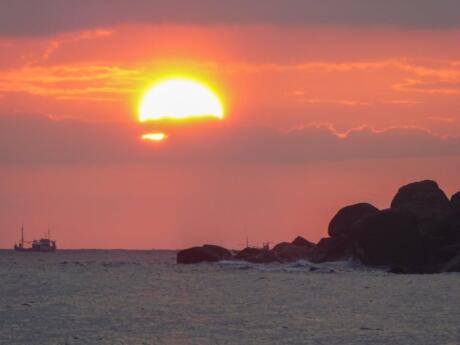
Whilst Sri Lanka doesn't have the best waters (it's choppy and quite rough!), the beaches are lovely. Some of our favorites were Mirissa and Unawatuna, both on the south coast. The sunsets every evening were truly something to marvel at. As mentioned, the water itself is rough and therefore not great visibility, so don't come here expecting to snorkel. However, if you love surfing, this island was made for you, with many excellent surfing spots, as well as choices for those with varying degrees of skill. The best thing is, Sri Lanka is a year-long surfing destination so whenever you visit you can hit those waves.
Pride and gay events in Sri Lanka
Due to the anti-gay laws, there is not much by way of exclusively gay events in Sri Lanka other than the annual Colombo Pride and the ABHIMANI Queer Film Festival, both in June. We've included these along with a few other events we recommend LGBTQ travellers in Sri Lanka to check out:
Atman Tribal Festival (January)
This is a week-long tribal gathering/festival of art, music and performances that take place each year on one of Sri Lanka's beaches. While it's kind of a rave for those who like psytrance/dark trance music, the organisation behind the festival also focuses on charity aid and eco-sustainable projects, so you can feel good about attending this inclusive dance event.
Galle Literary Festival (January)
Book-lovers will not want to miss out on the Galle Literary Festival, as it's one of the most well-known and highly anticipated literature festivals taking place in south-east Asia. The festival is for both authors and literary enthusiasts from around the world, with a variety of events taking place in the historic Dutch-influenced Galle Fort, which is also a UNESCO World Heritage Site. The festival includes art exhibitions, talks, history walks, workshops, cooking classes and more.
Sinhala & Tamil New Year (April)
Both the Sinhala Buddhists and Tamil Hindus celebrate New Year in Sri Lanka around the 13th or 14th of April at the sighting of the new moon. Locals usually celebrate the New Year for seven days, taking part in religious activities and serving traditional foods with family. Coconut-based sweets and delicacies are particularly popular at this time of year. If you're visiting Sri Lanka during this time you'll see lots of festivities taking place, while many hotels and resorts will also include you in their celebrations.
Vesak Poya – Festival of Lights (May)
Vesak Poya is a festival that takes place in many Asian countries to celebrate the birth, enlightenment and the “nirvana” of Buddha. Vesak Poya is also known as the Festival of Light since Buddhists decorate their homes with paper lanterns, clay lamps and intricate ‘kudu’ which are large lanterns surrounded by tiny lanterns decorated in many colours. There are also roadside stalls erected all over the country offering free food as a meritorious act.
Colombo Pride (June)
The capital of Sri Lanka, Colombo, has been hosting gay pride events for 15 years. Organised by The Equal Ground LGBTQ organisation, it has faced some pushback and intimidation in the past, but things are definitely improving. Colombo Pride events include a pride parade, a rainbow kite festival, parties, dance performances, art and photography exhibitions. Check out the Colombo Pride Facebook page for the latest information about the next event.
Abhimani Queer Film Festival (June)
Also organised by The Equal Ground is Abhimani, the only LGBTQ film festival in Sri Lanka. The festival presents a range of queer short and feature-length films from countries around the globe. Check the Abhimani Facebook page for more up-to-date information on the next festival.
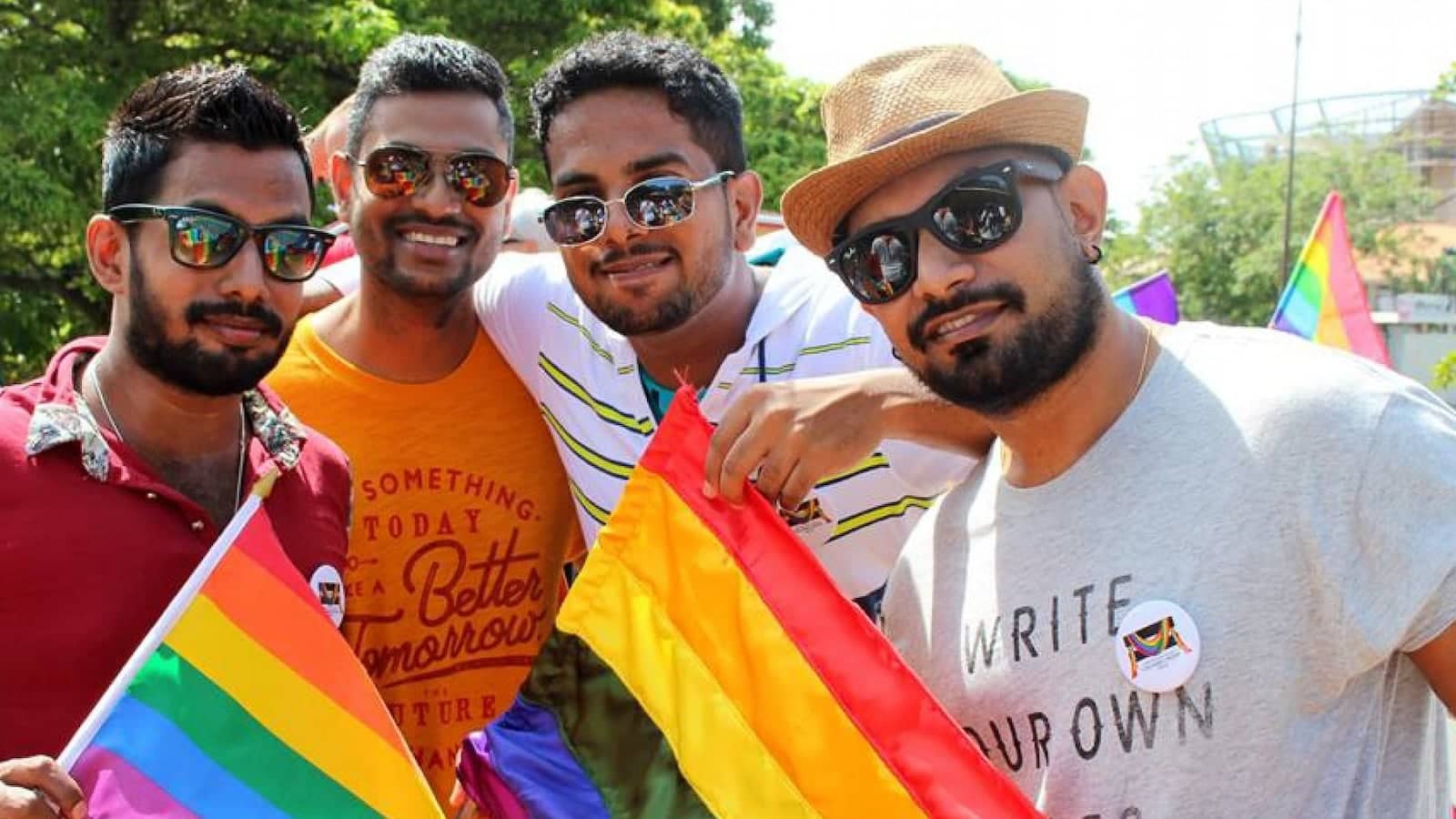
Food and drink in Sri Lanka
Foodies will LOVE Sri Lanka – we sure did!
Sri Lankan food is hands down one of the best in Asia. These guys make a divine curry from absolutely anything, whether it's a jackfruit or an aubergine. Here is a summary of some of the best foods/drinks you need to try in Sri Lanka, but for a more in-depth guide, be sure to read our article about Sri Lankan food.
Rice and Curry
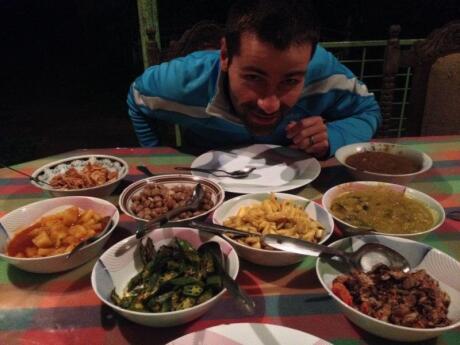
Since Sri Lanka is located just off the southeast tip of India, it makes sense that it has some cuisine elements in common. However, the types of curry (usually served with rice) that you will come across in Sri Lanka are not exactly the same as those from India. Sri Lankan curries are usually thinner and more heavily spiced, partly due to the wide variety of international ingredients brought in by trade. We loved trying different curries during our time in Sri Lanka, some with seafood like fish, prawns or crab and others with pork, lamb, beef, chicken or even goat.
Deviled Prawns
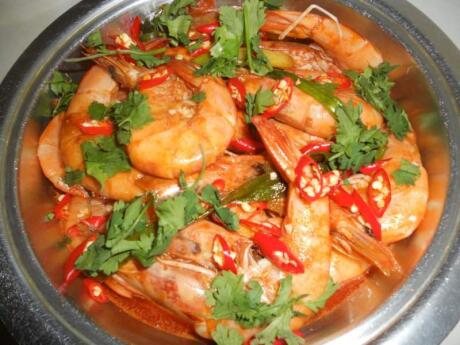
If you ever see something in Sri Lanka that's called ‘deviled' then you know it's going to be spiiiicyy! Also known as ‘isso baduma', deviled prawns in Sri Lanka are usually served as an appetizer or with some pre-dinner drinkies. The contrasting sweet and sour notes create a burst of flavours on your tastebuds. A glass of Arrack (see below) pairs especially well with the sweet, sharp notes of the devilled prawns, or you could just enjoy them with a refreshing, cold beer.
Egg Hoppers
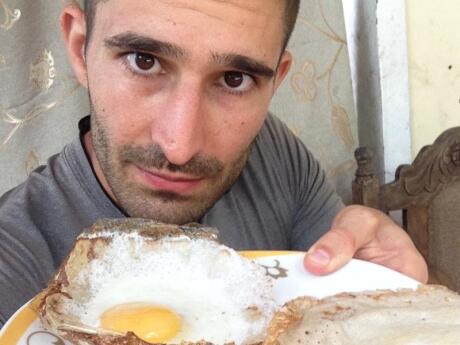
Curry and rice are served at any time of the day in Sri Lanka, but egg hoppers are a bit of a breakfast staple that you'll find all over the country. Made from fermented rice flour and coconut milk, they're cooked in a bowl to make a kind of pancake shape, then a fried egg is added in the middle. The dough cooks up to be thick and soft on the bottom, thin and crunchy around the edges. You can use them to pick up the same sort of curries and other wet dishes that rice is often used for. You can get hoppers from roadside stalls, bakeries and hotels all over Sri Lanka.
String Hoppers
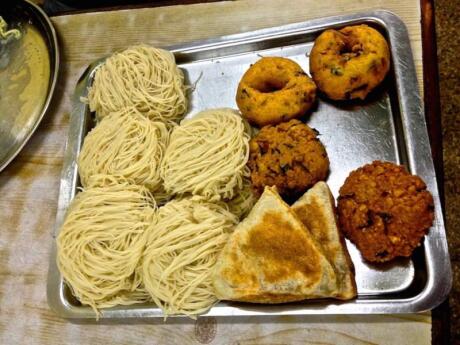
As well as the egg version, string hoppers are another popular snack made in Sri Lanka. Also called ‘idiyappam', they're made from steamed rice flour noodles that have been pressed through a special extruder and then shaped into the cute little nests on the left of this picture. They can be eaten the same way as the egg hoppers, to scoop up curries and other dishes or even just as a snack. They're often served with a yummy thin coconut gravy or made into a sweet treat with the addition of sugar and coconut.
Kothu Roti
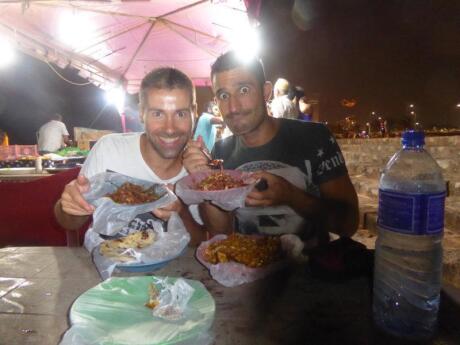
Also spelt koththu or kotthu, kothu roti is a uniquely Sri Lankan dish made from a type of flatbread (roti) which is shredded then mixed with vegetables, egg, meat and aromatic spices. Everything is chopped up and cooked together on a flat griddle with characteristic beating sounds. Street vendors often make kothu roti with a lot of dramatic flair and rhythm, so the dish is entertaining as well as tasty! It's also very popular with young people as a snack on the way home after a night of partying in Colombo.
Watalappam
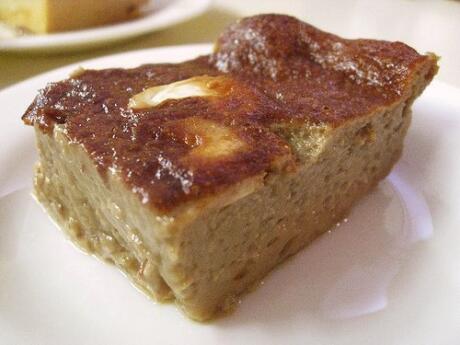
Believed to have been brought to Sri Lanka from Malaysia in the 18th century, watalappam (sometimes called watalappan) is a well-known and delicious dessert. It's kind of like a flan but made from coconut cream, jaggery (a type of palm sugar), eggs, cashew nuts and various spices. Watalappam is delicious and lighter than air, sometimes with chopped nuts on top to add a bit of a contrasting crunch to this soft dessert. It's very popular during weddings, festivals and religious celebrations.
Arrack
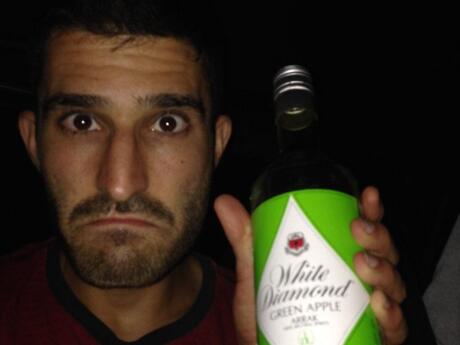
Arrak is Sri Lanka's signature spirit. It's made from just two ingredients: water and the distilled sap of unopened flowers of Sri Lankan coconut palms. Men known as ‘toddy tappers' climb to the tops of coconut trees to collect the sap, which is then allowed to ferment. After 24 hours it becomes a mildly alcoholic drink (known as a toddy) and is then put into timber vats or copper stills to age, often for years. Arrack is actually one of the oldest distilled spirits in the world, older even than Scottish whisky, and very nice as part of a cocktail or mixed with some ginger beer. Just be wary of the hangover if you drink too much as it's very strong!
Tea
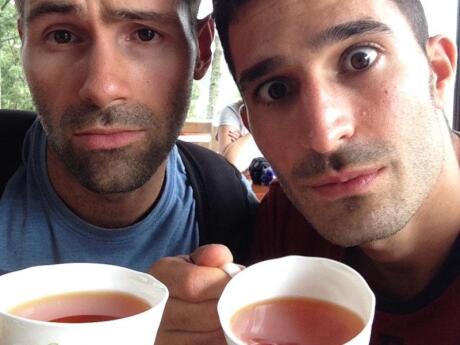
During the British occupation of Sri Lanka, a tea plant was smuggled into the country from China and soon tea plantations started popping up all over the place. Tea production thrived in the climate of Sri Lanka, due to the humidity, cool temperature and rainfall, especially in the central highlands. Sri Lanka is now the world's fourth-largest producer of tea, which is pretty impressive especially considering its small size. There's a fascinating tea museum located near Kandy, or you can tour a plantation in Nuwara Eliya as mentioned earlier in this article. Whatever you do, make sure you enjoy a cuppa at some point during your time in Sri Lanka!
Plan your trip to Sri Lanka
We've put together some handy hints and tips to help you plan your trip to Sri Lanka. Read on to find out everything LGBTQ travelers should know before they go:
Travel insurance: Sometimes when you're traveling, things just go wrong. Whether it's a canceled flight, lost luggage or you fell down some stairs, you should never travel without travel insurance. We've been using Heymondo Travel Insurance for years and absolutely love them. They offer comprehensive cover and it's easy to make a claim online when needed.
How to get there: Since it's an island, you will most likely need to arrive by flying into Sri Lanka. The main international airport is Bandaranaike, located north of the capital Colombo. There are buses to take you from the airport to downtown Colombo, although we usually prefer to book a private airport transfer with an English-speaking driver so that we don't need to deal with the hassle when arriving in a new country.
Visa requirements: Sri Lanka has an Electronic Travel Authorization (ETA) system which means visitors from many countries can apply online for a tourist visa and not have to bother going to an embassy. Residents of some countries do need to apply for a visa in person at a diplomatic mission, so make sure you allow plenty of time before your travels to check your personal visa requirements for Sri Lanka.
Getting around: Sri Lanka is a small country, so it doesn't usually take long to get from one place to another. Public transport consists of buses and trains, both of which are affordable, although the trains are much better than the buses in our opinion.
Vaccinations: Travellers to Sri Lanka should be up to date with all routine vaccinations (such as measles, mumps, rubella), while the CDC also recommends getting vaccinated for Hepatitis A and Typhoid. Depending on which parts of the country you are visiting/what you plan to be doing while there, you may need further vaccinations, so make sure to check the CDC website and speak to your doctor before you book anything.
Currency: The currency used in Sri Lanka is the Sri Lankan rupee. The currency code is LKR and it's written as Rs. $1 US converts to about 181Rs, €1 is about 200Rs and £1 makes about 227Rs.
Tipping culture: There is a strong tipping culture in Sri Lanka, mostly owing to the fact that wages are low. Generally, if you receive good service, you would tip 10% for a restaurant bill and tip hotel staff around 1000Rs per day (which is about $5 US). Here is a detailed guide on tipping in Sri Lanka for more information.
Online privacy: Following communal violence in Sri Lanka in 2018 and 2019, the government dramatically increased censorship online, including blocking sites like Facebook, Instagram, Twitter and Youtube. If you want to be able to reliably (and privately) access the internet, we recommend using a VPN service like ExpressVPN. Their service is very reliable and affordable, enabling you to stay connected with ease.
Accommodation: When looking for places to stay in Sri Lanka we always use (and love) Booking.com. With so many options, excellent 24/7 customer service and an easy to use online system, it's always our go-to when planning our travels.
Sightseeing and adventure: Our other favourite planning website, for finding the best activities and tours, is GetYourGuide. They have so many choices for fun things to do, all over the world, as well as an easy to use booking system and wonderful 24/7 online support.
When to visit: Sri Lanka's weather is dictated by two monsoon seasons, but luckily they affect alternating sides of the island, so you can pretty much visit year-round. For the best experience, visit the west/south coasts and hill country between December – March, and/or the east coast between April – September.
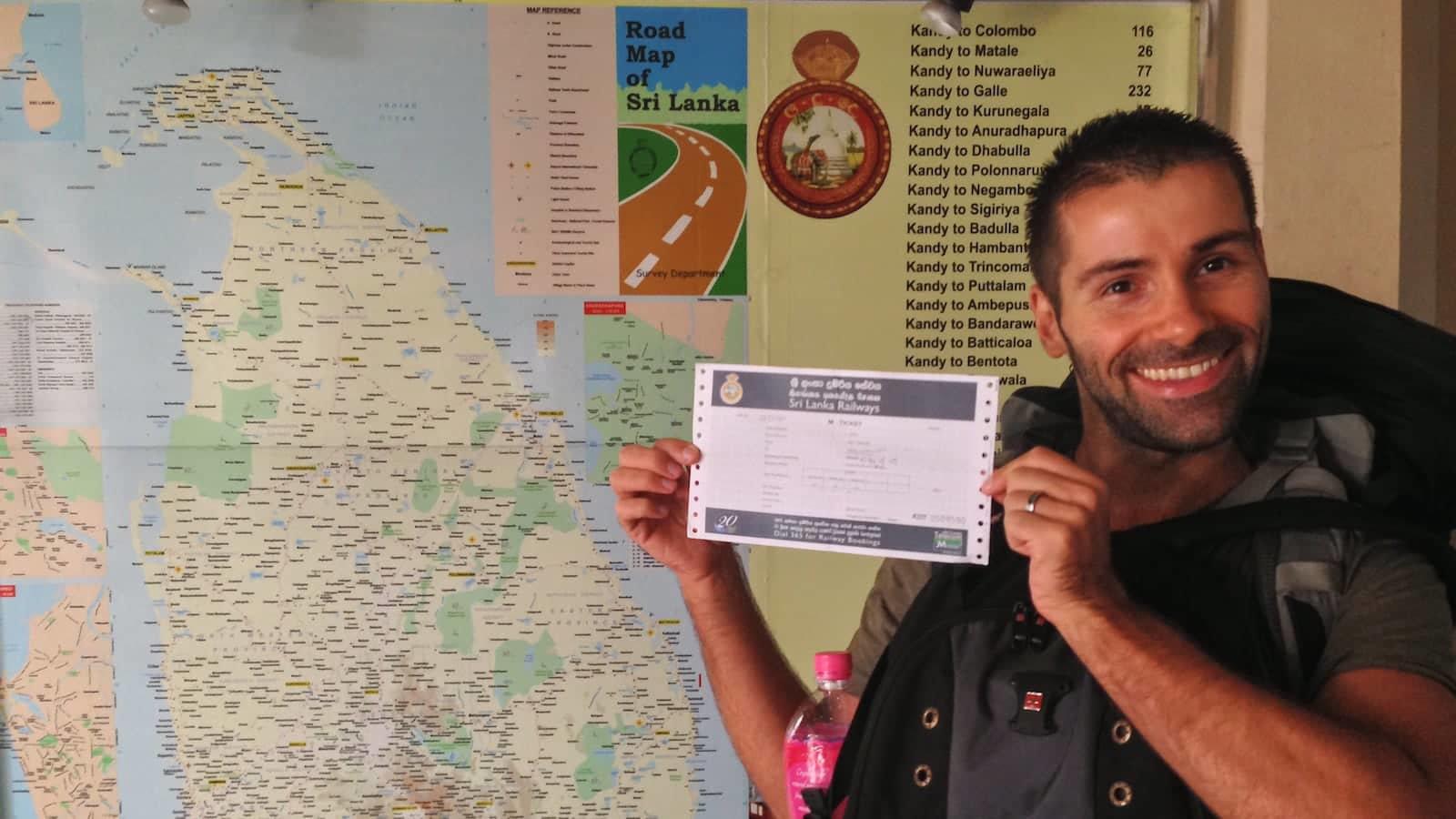
Safety tips for gay travellers to Sri Lanka
Is Sri Lanka safe for gay travellers? On the whole, yes. This is not the place you'd want to be displaying any LGBTQ activism or PDAs though. Society is still very conservative and even though foreigners are highly respected, you run the risk of getting negative attention if you're open about being queer here.
When it came to booking a double bed, this was never an issue for us in any of the guesthouses, hotels or homestays we stayed at in Sri Lanka. Follow these safety tips to ensure you have a wonderful time in Sri Lanka.
- Check official government advice before you go. We recommend all travellers do this for any destination so that you are aware of what is happening and what your country's government currently advises. For gay travellers from the United Kingdom, here is the current travel advice for Sri Lanka.
- Whilst Sri Lankans are extremely warm, welcoming people, remember that homosexuality is illegal here and society has very conservative opinions about it, so it's best to avoid any PDAs.
- Just like anywhere in the world, be aware of your surroundings, especially in Colombo. Tourists are usually seen as easy pickings for thieves and pickpockets, so make sure you are always paying attention to what's going on around you. Traffic in Sri Lanka can also be quite chaotic, so you want to be aware of what's happening in order to avoid an accident!
- Avoid excess alcohol and drug use. Sri Lanka has some really strict laws especially in relation to drugs. As you arrive at the airport, a sobering sign at Immigration reminds you arrests for drugs can carry the capital punishment! We're not saying don't have a good time, but be careful! In addition, people who are obviously intoxicated or high are going to be seen as much easier targets than others. Just try not to overindulge and be aware of your surroundings even while partying.
- Don't wear valuables in public. This is basic common sense, especially in Colombo. Petty crime is common here, as it is in most big cities around the world, so the more bling you show off, the more alluring you become as a target. We recommend leaving your valuables and important items locked away in your hotel safe.
- Invest in a good money belt. While you may be able to lock most items up in your hotel, you're going to need some cash and credit cards as you're exploring. Try not to carry everything with you and we also recommend investing in a good money belt that hides under your clothes so it's a lot harder for someone to try and rob you.
Read more travel adventures like this in our book!
We've published our very own gay travel book called, ‘Out in the World'. It has all our practical safety tips, first-hand advice, and travel stories from some of our favorite destinations.
We hope it inspires you to have a fun and safe trip!
Click on the book to order:

For more inspiration:
- Find out more about spotting Blue Whales in Mirissa, Sri Lanka
- As well as experiencing an elephant safari in Udawalawe
- From Sri Lanka, you should also check out Varanasi, India's holy city
- Find out which are the most gay friendly countries in Asia
- As well as the most gay friendly countries around the world
- Want to celebrate pride? These are the biggest gay pride events in the world
- We have a full guide for experiencing New York City's incredible gay pride
- You'll need some inspiration for fabulous gay pride outfits
- And don't go to a pride parade without packing these essential gay pride accessories
Like this post? Pin it
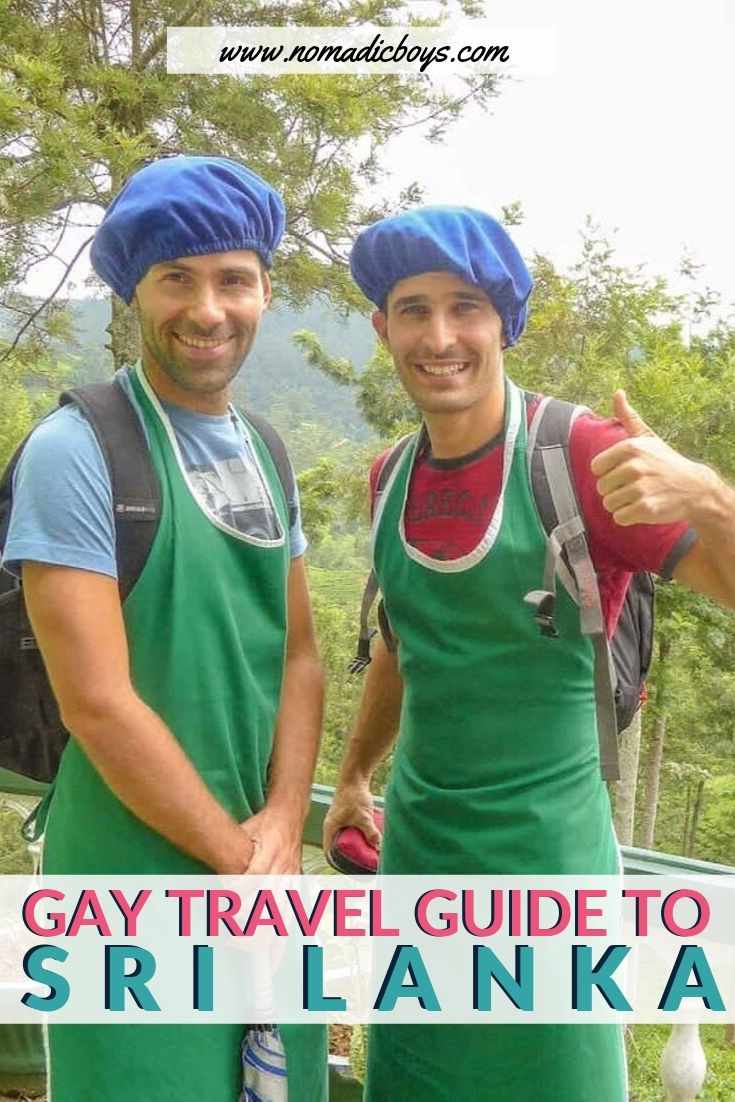

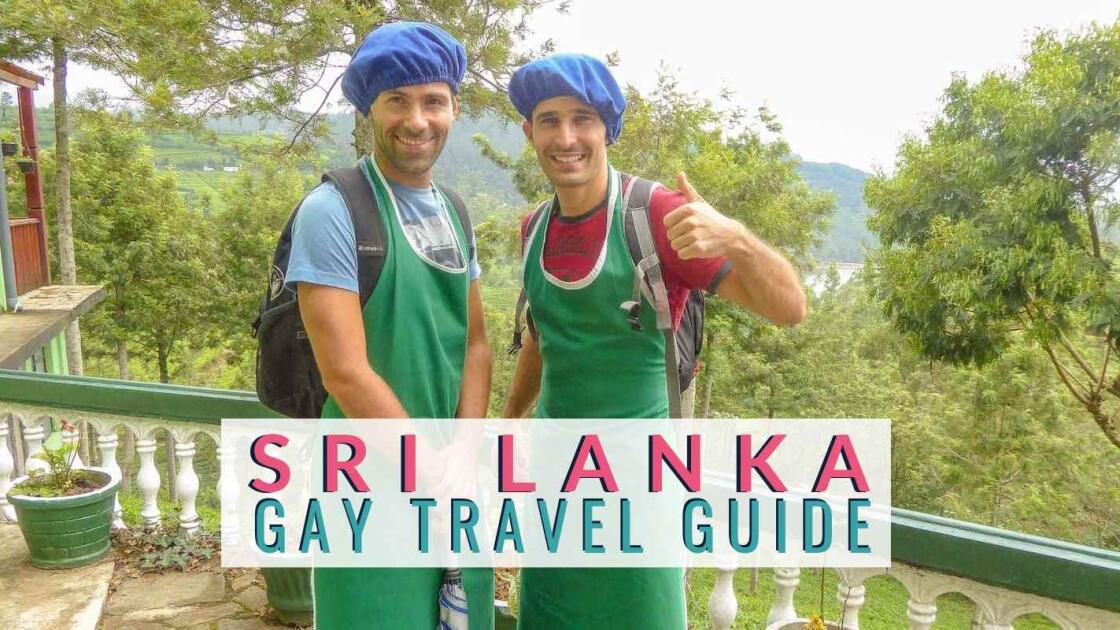
Michael
Wednesday 30th of July 2025
Hi guys, just booked our trip to Sri Lanka in January via your agency link at Pinky Swear and good advice. Really looking forward to it and appreciate your detailed info. Hope you're both doing well. Michael in Malta!
Stefan Arestis
Wednesday 6th of August 2025
Oh so pleased! Thanks for letting us know :)
Murray Corren
Tuesday 22nd of April 2025
Hi, I’m a Canadian gay man and my fiancé is a Sri Lankan citizen. He’s in the tourist industry and has just opened a new lgbtqia+ guesthouse in the Southern Province in the Galle and Mirisa region. It’s near the beach and has accommodation for 6 guests.
Stefan Arestis
Sunday 27th of April 2025
Nice one guys :)
Viraj
Sunday 17th of May 2020
I'm also gay. I accidentally read your feedback. It was amazing. Thank you very much for your feedback
Stefan Arestis
Monday 18th of May 2020
Our pleasure :)
Amanda Peterson
Saturday 8th of February 2020
Hi both, Your web site is very very good with lots of useful information. Will be very good for us as we plan to go to Sri Lanka in January 2021, for my special Birthday. We want to stay 4 weeks and do and see as much as we can. Thanks again for the great web site! Ps we live in Cyprus, Pissouri!
Stefan Arestis
Sunday 9th of February 2020
You guys are gonna love it :)
Shev
Wednesday 22nd of January 2020
One of the best places to find Sri Lankan gay men is the Lanka Friends website. I've met a few really good friends there who helped me with my travel plans.
Stefan Arestis
Thursday 23rd of January 2020
Noted, thanks Shev!